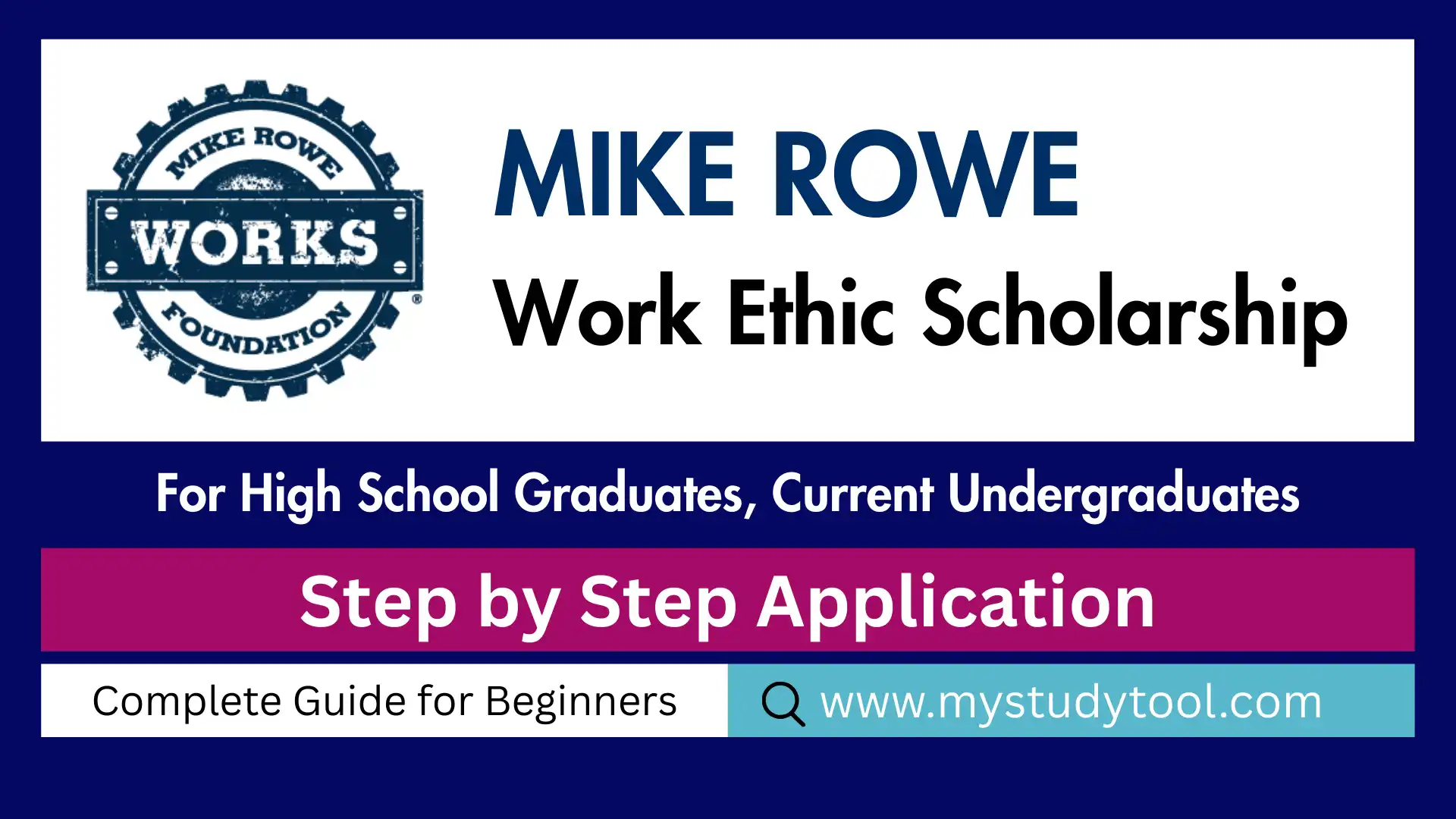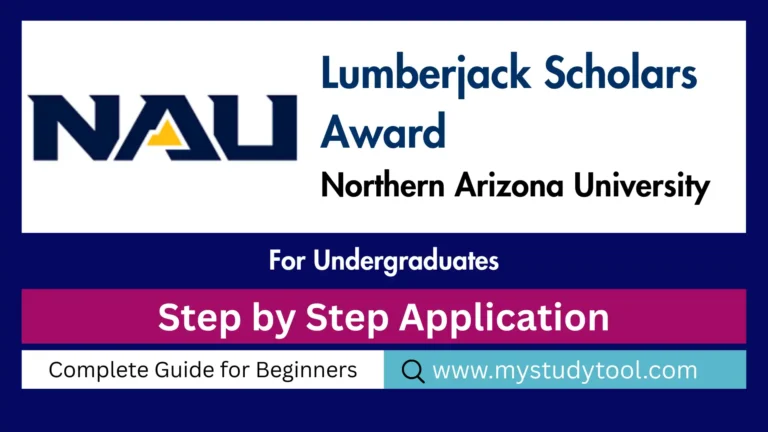Look, I’ve been helping students navigate the scholarship world for years, and honestly? The Mike Rowe Work Ethic Scholarship is one of those opportunities that actually gets me excited. Why? Because it’s not your typical “write an essay about leadership” kind of deal. This scholarship celebrates the folks who aren’t afraid to get their hands dirty—and I mean that in the best possible way.
The Work Ethic Scholarship Program is giving away another $2,500,000 in scholarships this year, which breaks down to individual awards that can seriously change your educational trajectory. What I’ve noticed over the years is that students often overlook trade-focused scholarships, but here’s the thing—these programs are specifically designed for people pursuing careers that keep our society running.
Actually, let me clarify something right off the bat. This isn’t just about trades, though that’s definitely the focus. Mike Rowe’s foundation recognizes that we need skilled workers in everything from electrical work to plumbing, HVAC to manufacturing. The kind of jobs that, well, you can’t outsource to another country or replace with an app.
Scholarship Overview
Here’s what you need to know upfront about the Mike Rowe Work Ethic Scholarship program:
- Academic Level: High school graduates, current undergraduates, and graduate students
- Host Institution: mikeroweWORKS Foundation
- Country: United States only
- Target Recipients: Students pursuing careers in skilled trades and technical fields
- Total Program Value: $2,500,000 annually distributed across multiple recipients
- Individual Award Range: Varies, with awards up to $20,000 per recipient
- Application Cycle: Annual (typically opens in spring)
Also read: Tennessee Hope Scholarship | Complete Guide
Mike Rowe Work Ethic Scholarship Coverage
So what exactly does this scholarship cover? Well, that’s where it gets interesting—and honestly, pretty generous.
The scholarship funds can be applied toward:
- Tuition and fees at approved technical schools, community colleges, or trade programs
- Required textbooks and educational materials
- Essential tools and equipment needed for your program
- Program-related certification costs
- Living expenses directly related to your education (housing, meals during training)
- Transportation costs for attending your educational program
- Professional licensing fees upon program completion
What I really appreciate about this coverage is how practical it is. I mean, if you’re studying to become an electrician, you’re going to need actual tools, right? Most scholarships don’t think about that stuff.
Also read: Too Cool to Pay for School Scholarship 2026 | How to Apply
Eligibility Criteria for Mike Rowe Work Ethic Scholarship
Alright, here’s where you find out if you’re actually eligible—and don’t worry, the requirements are pretty straightforward.
Applicants must be a high school freshman, undergraduate, or graduate student. High school students, graduates, or GED equivalent who intend to enroll in a licensed two-year college, vocational, technical school, or other approved technical institute in the U.S.
The specific eligibility requirements include:
- Must be a U.S. citizen or legal resident
- Age requirement: Must be at least 17 years old at the time of application
- Educational status: High school graduate, GED holder, or currently enrolled student
- Program focus: Must be pursuing education in skilled trades, technical fields, or vocational training
- Work ethic demonstration: Must be willing to sign and uphold the S.W.E.A.T. pledge
- Academic standing: Maintain satisfactory academic progress (varies by institution)
- Financial need: Preference given to students demonstrating financial need
- Geographic location: Available to residents of all 50 U.S. states
Required Documents for Mike Rowe Work Ethic Scholarship
Getting your paperwork together is actually pretty manageable—I’ve seen way worse requirements from other programs.
You’ll need to gather these documents:
- High school or college transcript
- Most recent 1040 tax form (yours or your parents’ if you’re a dependent)
- Proof of enrollment or acceptance letter from your technical school or program
- Two professional or academic references with contact information
- Completed S.W.E.A.T. pledge agreement
- Personal statement addressing the four scholarship questions
- 60-second video submission explaining your career goals and work ethic
Also read: Engebretson Foundation Scholarship 2026 | How to apply?
How to Apply for the Mike Rowe Work Ethic Scholarship
Here’s where the rubber meets the road—actually submitting your application. The process is pretty unique compared to other scholarships I’ve worked with.
The application steps are:
- Visit the official mikeroweWORKS Foundation scholarship portal
- Create your applicant account with basic personal information
- Complete the online application form with all required fields
- Sign the S.W.E.A.T. pledge, answer four short questions related to the pledge, make a short, 60-second video, and submit two references.
- Upload all required documents in the specified formats (PDF preferred)
- Review your complete application for accuracy and completeness
- Submit your application before the deadline
- Monitor your email for confirmation and any follow-up requests
Actually, let me talk about that S.W.E.A.T. pledge for a second because it’s pretty central to this whole thing. S.W.E.A.T. stands for “Skill & Work Ethic Aren’t Taboo,” and it’s basically Mike Rowe’s way of saying that working with your hands and learning practical skills isn’t somehow “less than” getting a traditional four-year degree.
Application Deadline for Mike Rowe Work Ethic Scholarship
The application deadline is April 17, 2026, with submissions accepted until 11:59 PM Pacific Time on that date. Don’t wait until the last minute, though—I’ve seen too many students miss out because of technical issues or forgotten documents.
Here’s what I always tell my students: aim to submit at least 48 hours before the actual deadline. Trust me on this one.
Also read: Alpha Kappa Alpha Scholarships – Application Process
Official Website
Ready to start your application? Head over to the official mikeroweWORKS Foundation website to access the scholarship portal and get the most up-to-date application information.
Apply Now for the Mike Rowe Work Ethic Scholarship
Remember, the deadline is April 17, 2026, so don’t wait. Start gathering your documents, thinking about your video, and preparing your application. This could be the opportunity that changes your entire career trajectory.
Tips for a Strong Application
Honestly, after helping hundreds of students with scholarship applications, I’ve noticed some patterns in what makes applications stand out—especially for this particular program.
Your 60-second video is crucial. Don’t overthink it, but do put some thought into it. Mike Rowe wants to see authentic people who aren’t afraid of hard work. Talk about why you chose your field, what excites you about it, and how you plan to contribute to your community.
The personal statement questions usually focus on work ethic, career goals, and your understanding of skilled trades. Be specific. Instead of saying “I want to help people,” explain exactly how your chosen field serves others and why that matters to you.
Your references should ideally be people who can speak to your work ethic and character—employers, teachers, coaches, or community leaders who’ve seen you in action.
Common Mistakes to Avoid
I’ve seen students mess up their applications in pretty predictable ways, so let me save you some heartache.
Don’t submit a generic application. This scholarship is specifically about skilled trades and work ethic—make sure your application reflects that focus. If you’re applying to study HVAC, don’t spend three paragraphs talking about your love of literature.
Don’t underestimate the importance of the S.W.E.A.T. pledge. It’s not just a formality—it’s literally the foundation of what this scholarship represents.
And please, please check your spelling and grammar. I know it sounds basic, but you’d be surprised how many otherwise strong applications get hurt by careless errors.
What Happens After You Apply
After you submit your application, you’ll typically hear back within 60-90 days. The selection process involves multiple rounds of review, and winners are usually announced in late spring or early summer.
If you’re selected, you’ll receive detailed instructions about how to claim and use your scholarship funds. The money typically gets sent directly to your educational institution, so you’ll need to coordinate with their financial aid office.
Alternative Funding Options
While you’re applying for the Mike Rowe scholarship, don’t put all your eggs in one basket. There are other funding sources for technical education that you should definitely explore.
Similar Trade-Focused Scholarships:
- Kevin Phillips Scholarship for RV technician training (varies)
- WHVACR Scholarship for women entering the HVAC industry ($5,000)
- Home Depot Foundation’s Path to Pro Scholarship ($2,000)
- Nuts and Bolts Foundation Scholarship for manufacturing careers ($2,500)
- Various trade union scholarships (amounts vary by organization)
Many states offer their own technical education grants and scholarships. Individual trade organizations also provide funding—electricians, plumbers, welders, and other trades all have their own scholarship programs.
Community colleges often have institutional scholarships specifically for technical programs. And don’t overlook federal financial aid—you might qualify for Pell Grants or other need-based assistance.
Final Thoughts
Here’s what I want you to remember: the Mike Rowe Work Ethic Scholarship isn’t just about money (though $2.5 million in total funding is nothing to sneeze at). It’s about recognizing that skilled trades are essential, honorable, and profitable career paths.
If you’re someone who enjoys working with your hands, solving practical problems, and building things that matter, this scholarship could be exactly what you need to jumpstart your career. The application process is straightforward, the funding is substantial, and the recognition that comes with being selected can open doors throughout your career.
Don’t let anyone tell you that pursuing a trade isn’t “real” education or a “real” career. The people who fix our pipes, wire our homes, and keep our air conditioning running are essential workers—and they’re often making better money than folks with four-year degrees and student loan debt.







